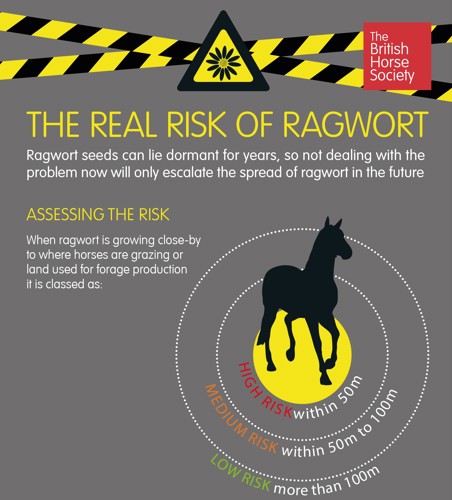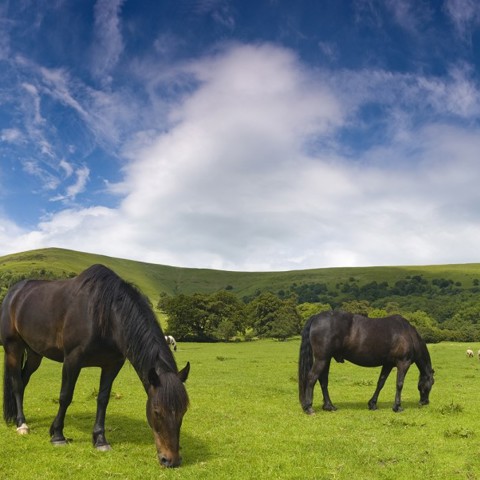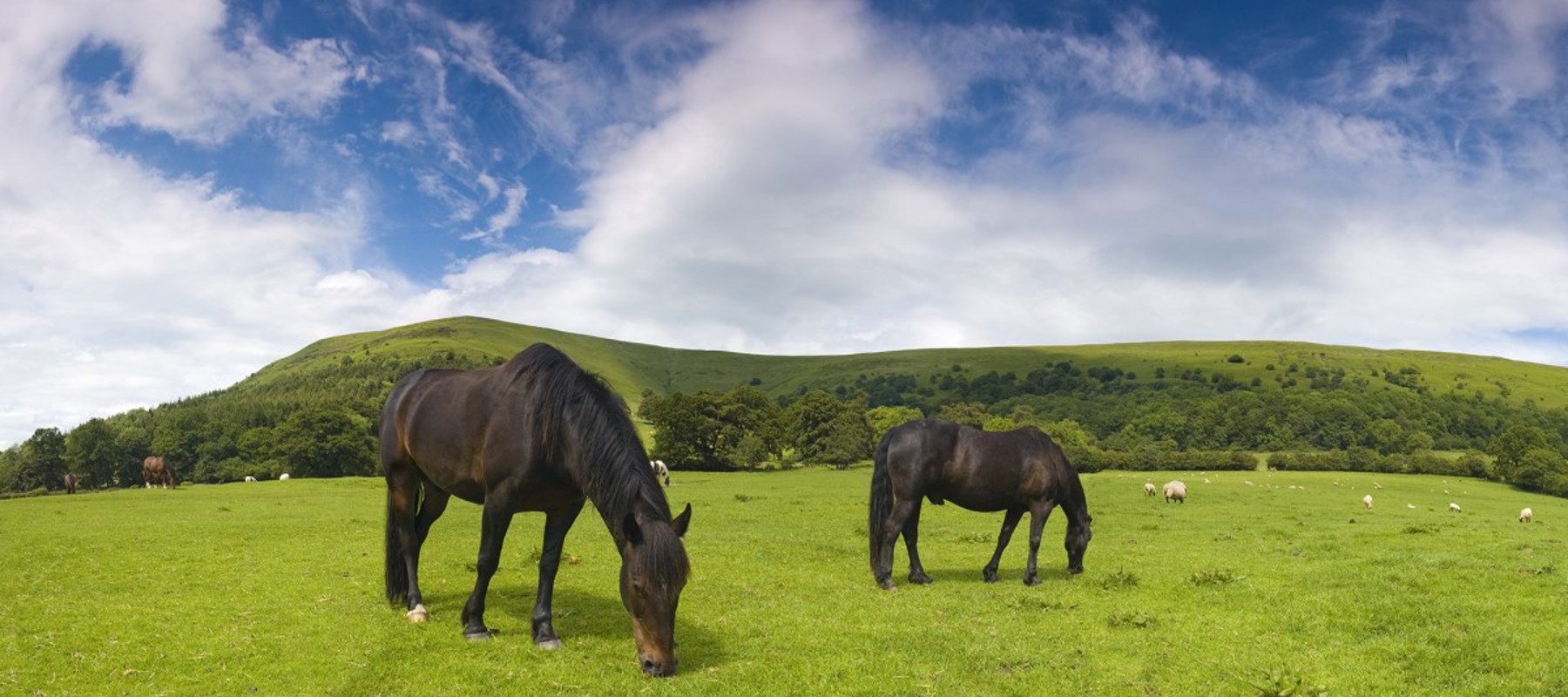Remove ragwort from fields used for grazing
If land you own has ragwort, and it’s either at risk of spreading to high-risk land or your land is occupied by horses, you must act now to remove the ragwort.
- You can read our information about how to remove and dispose of Ragwort here.
- How to identify Ragwort
The Horse Care & Welfare team has a network of Welfare Advisers and Field Officers who will aim to resolve any concerns by working with the horse owner/keeper or landowner in an advisory capacity.
If you’re concerned about horses grazing in fields with ragwort, contact the team on:
High risk land areas
If ragwort is growing within 50 metres of land used by horses or for forage production, take action immediately.
The landowner must take immediate action to remove the weed from this area and control its spread. It’s not an offence for ragwort to grow in certain areas but spread of ragwort onto high-risk land should be controlled.

The landowner’s permission must always be obtained before going onto other land or removing ragwort (or any other plant) from it.
Private owned land or private road
England
chevron-down
chevron-up
Defra's Code of Practice on How to Prevent the Spread of Ragwort has full details of the actions that complainants should take. Refer to points 25 and 26 of the Code.
When a potential problem is identified, the landowner/occupier should be contacted first. We understand this can be a daunting situation but you can use our template letter as an initial starting point to communicate with the neighbouring landowner. If the landowner/occupier fails to take any action to prevent the spread of ragwort or remove it where necessary, Natural England should then be notified.
Download a Weed 2 Complaint form and guidance
Fully completed Weed 2 Complaint forms need to be returned to: Natural England Enquiries Team, Technical Services Natural England, County Hall, Spetchley Road, Worcester, WR5 2NR.
Natural England will take enforcement action under the Weeds Act 1959 where ragwort poses a high risk to horses or the production of conserved forage.
Scotland
chevron-down
chevron-up
The Scottish Government Guidance on How to Prevent the Spread of Ragwort has full details of the actions that complainants should take.
When a potential problem is identified, the landowner/occupier should be contacted first. If the landowner/occupier fails to take any action to prevent the spread of ragwort or remove it where necessary, Scottish Government, Rural Payments and Inspections Directorate (SGRPID) can be contacted.
The SGRPID will take enforcement action under the Weeds Act 1959 where ragwort poses a high risk to horses or the production of conserved forage.
Wales
chevron-down
chevron-up
The Welsh Government's Code of Practice to Prevent and Control the Spread of Ragwort has full details of the actions that complainants should take.
When a potential problem is identified, the landowner/occupier should be contacted first. For instances where ragwort issues cannot be resolved contact the Natural Environment and Agriculture Team of the Welsh Government on 0300 0622306 or submit an official complaint form directly to the Rural Inspectorate Wales - see code of practice for details (click on above link).
The Rural Inspectorate Wales may take enforcement action under the Weeds Act 1959 where ragwort poses a high risk to horses or the production of conserved forage.
Other land areas
Parish, community or council-owned land
chevron-down
chevron-up
Public road
chevron-down
chevron-up
Motorways or trunk roads
chevron-down
chevron-up
At no point should you ever try to enter motorway verges to check for ragwort.
England
Contact Highways England on 0300 123 5000 or visit their website highwaysengland.co.uk for further information.
Scotland
Contact Transport Scotland on 0141 2727100 or visit their website transport.gov.scot for further information.
Wales
Contact The North and Mid Wales Trunk Road Agent on 01286 685186 or visit their website for further information.
Contact The South Wales Trunk Road Agent on 0300 1231213 or visit their website for further information.
National railway
chevron-down
chevron-up
At no point should you ever try to enter railway lines to check for ragwort.
Contact Network Rail on 03457 114141 or visit their website networkrail.co.uk for further information.
Canal and Rivers
chevron-down
chevron-up
Please contact the Canal and River Trust (England and Wales) or Scottish Canals.
Ministry of Defence Land
chevron-down
chevron-up
Contact the local base directly. Visit the Ministry of Defence national website for further information.
Common Land
chevron-down
chevron-up
Contact the local council or private landowner.
Forestry Land
chevron-down
chevron-up
England
The Forestry Commission will be responsible. Visit their website for further information.
Scotland
Forest and Land Scotland will be responsible. Visit their website for further information.
Wales
Natural Resources Wales will be responsible. Visit their website for further information.
Medium risk land areas
If the ragwort is growing within 50-100 metres of land used by horses or land used for forage production, then this land is classified as medium risk.
Discuss the risk with the landowners/occupiers. They should continue to monitor the situation and put controls in place if necessary.
Low risk land areas
If the ragwort is growing over 100 metres of land used by horses or land used for forage production, then this land is classified as low risk.



